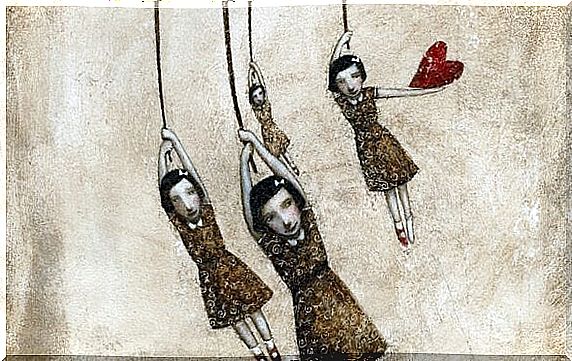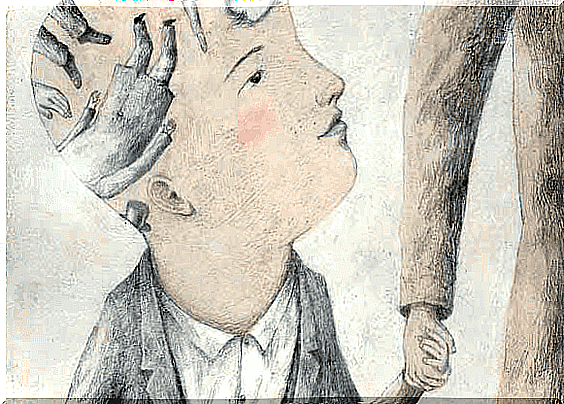When You Are A Prisoner In An Affectionate Emotional Age

Lack of love is something that really leaves a mark, especially at certain ages. But sometimes it affects you so strongly that you get caught up in something called an affectionate emotional age. In other words, the lack of affection and love prevents you from developing, and you will not be able to move forward until you have healed.
The concept of “maturity” is basically just that: a concept. From a practical point of view, we all have many different ages within us. Some of them stand out more than others, but they are not alone in there. And it’s lucky for us, because it helps us to enjoy things with a child’s joy while we deal with problems with adult wisdom.
But there are also special circumstances that can leave you at a specific age. It usually ends up getting stuck in an affectionate emotional age if you do nothing about the problem.
It can even have its roots in early childhood. If so, you may have the same emotional age as the scared, hurt child you once were, even though you are much older now.
When you are young, almost all experiences will have a great impact on you. It’s the part of life when you lay the foundation for who you are and who you want to be. This does not mean that you will not need affection later, just that it is absolutely necessary during the youngest years.
When a child is 1-2 years old and does not get affection, they will first and foremost lose their confidence. Children always expect their parents or guardians to take care of their needs.
But sometimes this does not happen, or it does, but together with rejection and aggression. This will probably make it difficult for the child to trust people in the future. It can even make it difficult for you to trust yourself.

Around the age of 2-3, children formally begin their journey towards independence. The biggest part of this path is potty training.
At these ages, loving parents or guardians will nurture self-reliance with affection, and without pressure. They will not ask the child for something that goes beyond their level of development and learning ability.
They also do not want to slow down the child’s development by doing things that he can do on his own. Love should never lead to addiction, and self-reliance should never lead to abandonment.
Children often remain on this path towards independence between the ages of 3 and 6, although there are never specific ages or dates when it comes to people. No matter how it unfolds, this is always the age when they start exploring the world in earnest.
When a child is loved, it will turn out on this journey without fear. If it is not, it will feel uncomfortable and full of fear, even if there is nothing scary and dangerous out there.
When they are old enough for school, children will develop a love of work and efficiency. That is, if they have a loving support system. If they do not have it, they will do the school work with a sense of inferiority.

Usually you realize that you are stuck in an affectionate emotional age when you see certain personality traits as an adult and can not grasp where they come from. You are usually not able to change them either, even though you are convinced that it is necessary.
Some of the features include:
- Insecurity, shyness, fear.
- Problems confirming yourself, knowing what you want and expressing how you feel.
- Difficulty setting goals and striving for them because you have more fear than hope.
- Passivity in all areas of life, including the love life.
- Inability to enjoy things.
So what can you do? It is usually possible to heal a wound caused by a lack of affection. But it will not heal itself, so you have to make an effort.
It is a good idea to try to find a way for this affectionate child to express himself openly. Give this inner child space to speak and say how it feels, whether you are writing it down or talking to a therapist.
Pictures from Ofra Amit









